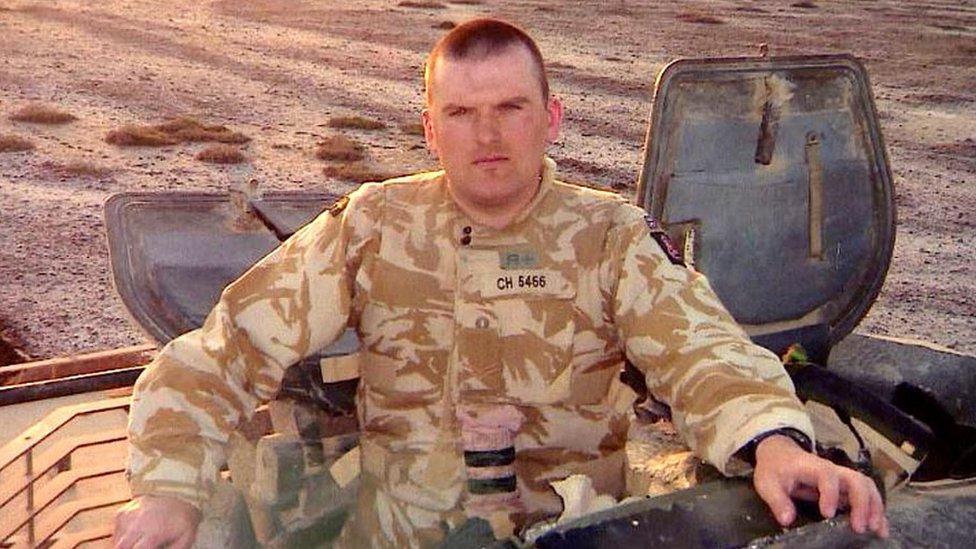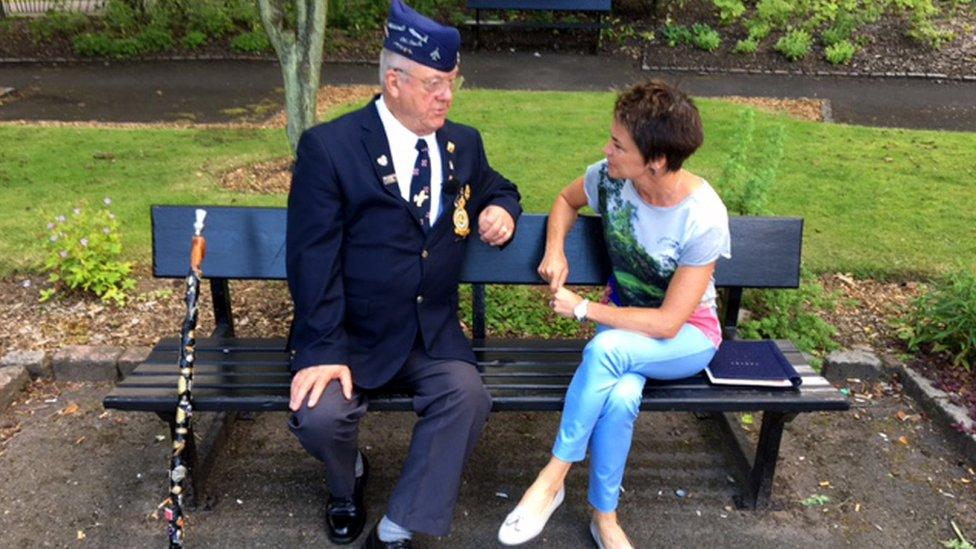Former soldier calls for more PTSD help for veterans from MoD
- Published

Andrew Christie served in Iraq
A former soldier from Aberdeen has called on the Ministry of Defence to do more for veterans suffering from Post Traumatic Stress Disorder (PTSD).
Andrew Christie, who served in Northern Ireland, Kosovo and Iraq, said he was diagnosed with PTSD while serving with the Royal Regiment of Scotland.
The 36-year-old said charities were being left to pick up the pieces.
The MoD said it was "committed to helping any member of the military community who is struggling".
Mr Christie said he knew of four veterans who had taken their own life in the past eight months.
Allow X content?
This article contains content provided by X. We ask for your permission before anything is loaded, as they may be using cookies and other technologies. You may want to read X’s cookie policy, external and privacy policy, external before accepting. To view this content choose ‘accept and continue’.
He said he joined the army when he was 16, and was posted to Northern Ireland when he was 18.
The former soldier said he was diagnosed with PTSD in 2005, and left the army in 2007.
Mr Christie told BBC Scotland: "Identifying you have a problem is a problem itself.
"You're in a tough environment, a lot of guys and women are so proud.
"It's not always what you've seen, it's people you have lost.
"I believe the MoD is not doing enough about aftercare."
He said he had seen things that were "not pleasant".
'Extensive support'
Mr Christie said he realised he had a problem due to excessive drinking, acting aggressively, and making people struggle to be around him.
He explained: "Seeing people take their own life is absolutely heartbreaking. The MoD need to open their ears."
An MoD spokesman said: "While rates of mental health disorder are lower in the military than the general population, the MoD is committed to helping any member of the military community who is struggling.
"Extensive support is available, including our specialist Defence Community Mental Health Units, increased spending on mental health provision and the 24/7 military mental health hotline.
"Our Defence People Mental Health and Wellbeing Strategy is aimed at tackling the stigma around mental illness, and encouraging anyone who is suffering to come forward and access the care they deserve."
If you are feeling emotionally distressed and would like details of organisations which offer advice and support, go online to bbc.co.uk/actionline or you can call for free, at any time to hear recorded information on 0800 066 066.
- Published23 August 2017
